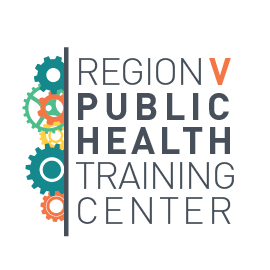In recognition of Black History Month, the next several blog posts will explore health equity, racism as a public health issue, using data to drive health equity work, and the importance of cross-sector partnerships to address the social determinants of health.
We encourage you to check out these and other opportunities to celebrate Black History Month:
- This year’s theme, set by the Association for the Study of African American Life and History (ASALH), is Black Health and Wellness.
- Learn about the Black Women & Public Health Research Collective
- Examine CDC’s COVID-19 Health Equity data for your community
- Identify and pay attention to efforts in your state and community to address racial health disparities and health equity
_
I’ve been spending some time lately clearing out my childhood belongings and old college papers from my parents’ basement. This is, of course, taking longer than I would hope, as I inevitably fall into the rabbit hole of actually reading my old papers and reflecting on how my perspectives have or haven’t changed since then. I studied American Culture so most of my classes focused on exploring the personal, social, and political nature of identities. Many of our assignments were reflective, and the papers I’ve come across show the evolution of my ideas about my own race, gender, socioeconomic status, and otherwise multifaceted identity in relation to that of others in the world around me, and the implications of identity for life experiences.
It was this interest in what I later learned are the social determinants of health and their influence on health equity that eventually led me to a career in public health.
Health equity is a central focus of the Region V Public Health Training Center. Where health disparities are “observable differences in health among disadvantaged groups,” health equity is when “everyone has a fair and just opportunity to be as healthy as possible. To achieve this, we must remove obstacles to health – such as poverty, discrimination, and deep power imbalances – and their consequences, including lack of access to good jobs with fair pay, quality education and housing, safe environments, and health care.”1,2
Addressing health equity requires change at the individual, interpersonal, organizational, and system levels. It’s critical to recognize that reflecting on one’s own identity (identities, really), catching one’s own implicit biases (we all have them), and advocating for social justice (whether in small or large ways) is the work of a lifetime. These must be ongoing practices and won’t be fulfilled by completing any particular training. Yet, cultivating strategic skills that empower people and agencies to partner across sectors and engage in policy, systems, and environmental change is an important place to start. Below are a few resources that can help you move through stages of awareness, reflection, and change as individuals and organizations.
Resources for Individuals
- Implicit Bias in Public Health Practice (RVPHTC)
- Introduction to Health Equity and Racial Justice (RVPHTC)
- Population Health and Health Equity (RVPHTC)
- Levels of Racism: A Theoretic Framework and a Gardener’s Tale (Camara Phyllis Jones)
- White Privilege: Unpacking the Invisible Knapsack (Peggy McIntosh)
- Public Health Awakened
Resources for Organizations
- Advocacy Communications for Policy, Systems, and Environmental Change (RVPHTC)
- Organizing for Policy, Systems, and Environmental (PSE) Change Webinar Series (UIC)
- Advancing Health Equity through Power Building and Narrative Change (RVPHTC)
- Changing Internal Practices to Advance Health Equity (RVPHTC)
- HealthEquityGuide.org (Human Impact Partners)
- Public Health Learning Agenda for Systems Change (Public Health Learning Network)
- Racism is a Public Health Crisis (APHA)
- Equity, Diversity, Inclusion: Action Toolkit for Organizations (APHA)
_
- HealthEquityGuide.org. https://healthequityguide.org/about/defining-health-equity/. Publication date unavailable. Updated July 27, 2019. Accessed February 1, 2022.
- Robert Wood Johnson Foundation. https://www.rwjf.org/en/library/research/2017/05/what-is-health-equity-.html. Published May 1, 2017. Accessed February 1, 2022.

